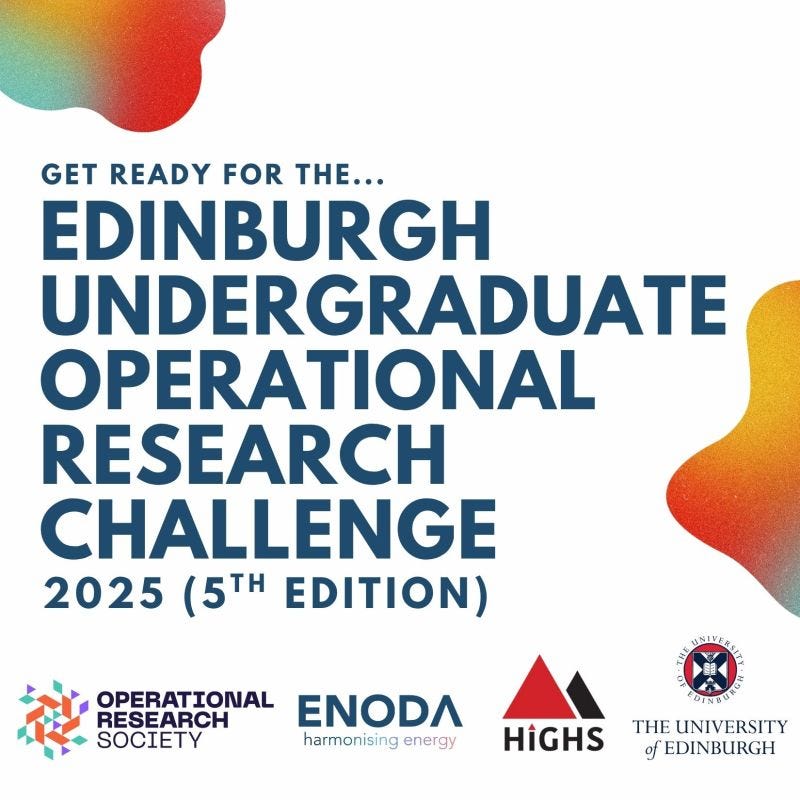📈 Who's winning the AI war, an OR challenge, the power of LLMs in OR
Local Optimum: short, imperfect-yet-useful ideas - Edition #18
Welcome to a new edition of Local Optimum: a short, imperfect-yet-useful collection of ideas related to optimization, decision-making, and applied Operations Research.
Let’s dive in! 🪂
1) 🤖 Who’s winning the AI war?
CEOs and developers all over the world are confronted in an AI war.
CEOs threaten to fire developers as AI will replace them because it codes faster and reliably good, so they don’t need developers anymore (or at least, not that many).
However, developers see no real value in using AI and a recent study seems to confirm it slows down developers’ experience.
I don’t know if AI will replace us or not, but…
I think it’s just a matter of time that almost everyone embraces AI for coding.
That’s what I argued in this LinkedIn post. Curious if your experience is similar.
Is your experience similar to mine?
2) 🏆 An OR challenge
Are you looking for an optimization challenge?
The 5th edition of the Annual Edinburgh Undergraduate OR Challenge is coming!
It seeks innovative solutions to a problem arising from the energy transition.
(click in the picture below to know more)
3) 🧑🏻💻 The power of LLMs in OR
When using LLMs in OR, I see four trends in the field (apart from pure coding or translating a business problem into a math model):
Using LLMs for solving optimization problems by manipulating the natural language.
Using LLMs for building algorithms that solve optimization problems.
Using LLMs for transforming problem descriptions into optimization models.
Training LLMs for optimization modeling.
If we step back a bit, everything’s related to the question of:
Can we automate maths?
If you want to read more, here’s the article:
Adding more hardware will improve your solutions?
I’m continuing the Where did the time go? series of posts this next Monday.
Remember this series of posts cover different aspects of tractability issues in optimization problems.
The last post we discussed why we’ve been stuck with CPUs. It was the first part of the two-part articles focused on hardware. I needed to split them as they were much longer than expected!
This time, we’ll cover:
🏎️ What faster hardware is on the shelf?
🎯 Extra computational power: what can we still do?
If you want to understand how modern hardware fits into your optimization problems, this will be useful. See you Monday!
And that’s it for today!
If you’re finding this newsletter valuable, consider doing any of these:
1) 🔒 Subscribe to the full version: if you aren’t already, consider becoming a paid subscriber. You’ll get access to the full archive, a private chat group, and 30% off new products.
2) 🤝🏻 Collaborate with Feasible. I’m always looking for great products and services that I can recommend to subscribers. Also, if you want to write an article with me, I’m open to that! If you are interested in reaching an audience of Operations Research Engineers, you may want to do that here.
3) 📤 Share the newsletter with a friend, and earn rewards in compensation. You’re just one referral away from getting The Modern OR Engineer Playbook: Mindset, methods, and metrics to deliver Optimization that matters.
If you have any comments or feedback, just respond to this email!
Have a nice day ahead ☀️
Borja.





